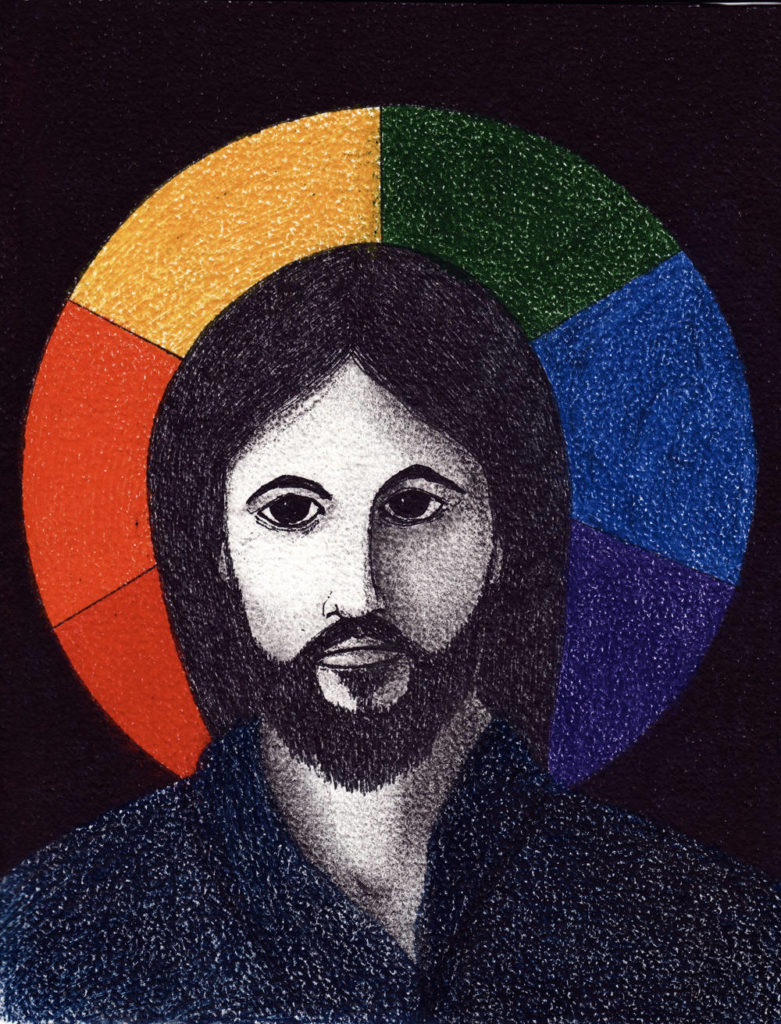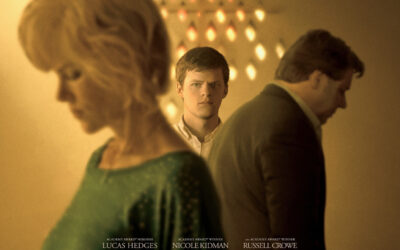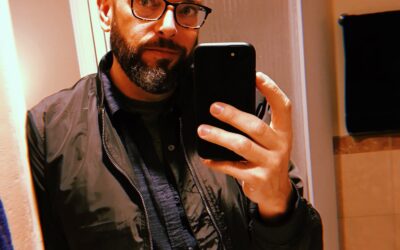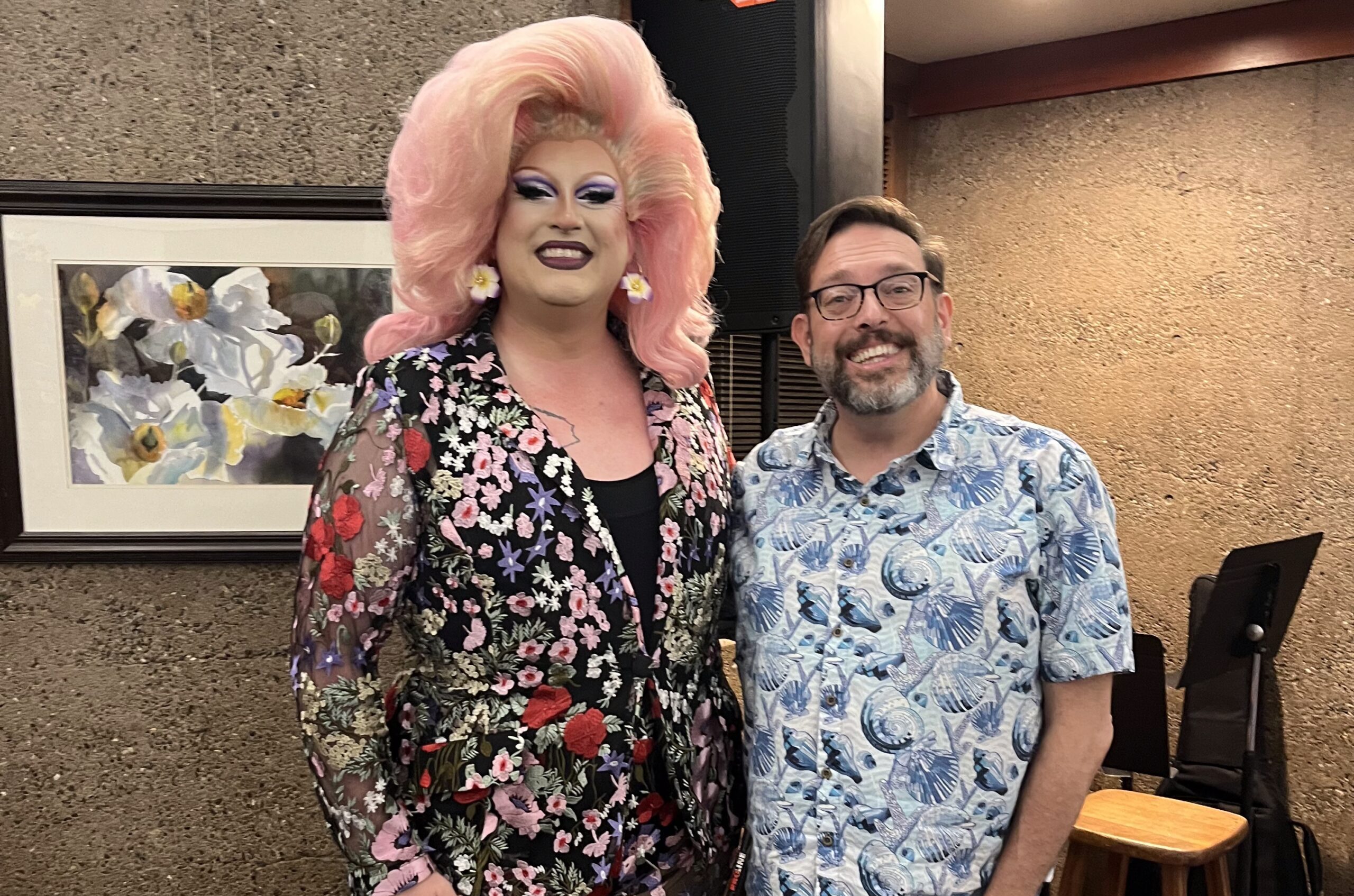
I recently got some feedback about my ministry from someone who used to go to my church. He basically said “I don’t want to hear that Matt’s gay every Sunday.”
Oof.
I’ll admit it. That hurt a little bit. And I can already imagine my friends and allies leaping to my defense. But before anyone tries to run this guy out of town, let’s actually engage the question. Because it’s not the first time I’ve heard this critique. In fact, I suspect that even solid allies might think to themselves sometimes… “Okay, okay… Look, I’m fine with gay people. But why do we have to hear about it all the time? I mean, I don’t announce that I’m straight every time I walk into a room.”
This is a valid question, and it deserves a thoughtful answer. This is a good man who probably hasn’t thought through the implications of his question.
But first of all, I don’t think I announce that I’m gay every Sunday. I’ve really tried to be honest here and think back over the last several months. I know I mentioned it on Pride Sunday back in June. I know I talked about it a little bit when I preached earlier this month. Oh, and I talked about it when we screened “For They Know Not What They Do” on the 15th, but to be fair, I was sitting on a panel of LGBTQ+ people after a film about the intersection of queer and Christian identities. That’s what we were supposed to be talking about. Plus, that was a Tuesday night.
I know for a fact that I didn’t mention my sexual orientation last Sunday. It was a strange and wonderful Sunday morning. We didn’t have power due to the fires and PG&E shutoffs, but we still gathered to sing and pray and hear biblical preaching. I haven’t experienced that much power and joy in worship in a long time. And while our guest speaker Lauren Ng did mention different sexual orientations, no one mentioned me or mine.
So I want to challenge the assumption. I don’t “announce” my sexuality every Sunday. There are many Sundays when I pastor The Quest without any reference to my sexuality at all.
But what if I did? Because honestly, sometimes I think I should talk about it more than I do.
Did you know that LGBTQ+ teenagers are three times more likely to complete suicide than their straight peers? That LGBTQ+ teenagers are twice as likely to be physically assaulted? Did you know that 40% of homeless youth are queer? That 64% of LGBTQ+ students don’t feel safe at school?
Did you know that in 73 countries, homosexuality is still considered a crime, in some places punishable by death? In the US, there still is no federal law barring employment discrimination on the basis of sexual orientation or gender identity?
I know, I know… For the past 3-1/2 years I’ve talked about being gay. I’ve written blog posts about it. I’ve preached about it. I’ve written songs about it. I’ve done a TEDx talk about it. I was music director for a queer church. I run support groups for gay men. I see a lot of musicals, and sometimes I even date men.
But here’s a question for my straight friends to consider: How often do you announce your heterosexuality? Probably more than you realize.
Do you ever talk about your spouse on Facebook? Have you ever held your spouse’s hand or given a quick peck on the cheek in public? Do you and your spouse and children ever walk into church and sit together? Do you ever talk about dating or married life with family or friends? Have you ever celebrated an anniversary publicly? Do you have a photo of your significant other sitting on your desk at work?
These are just a few of the million ways that heteronormativity pervades our world. And while it is true that there are a lot more straight people than queer people, that doesn’t mean that our relationships and experiences are any less “normal” than yours.
But from the time we are born, we are expected to be straight. We are little “lady killers.” We are asked from the time we’re in 5th grade about our girlfriends. When we buy flowers, sweet checkout ladies say things like “Oooh… Good job. She’ll love those.” We hear songs and watch TV shows and buy cards and read books and see music videos about heterosexual love. We hear our pastors talk about their “smokin’ hot wives.” We hear youth group lectures about sexual purity from youth leaders who cannot even imagine that some of us are not tempted by short skirts and low-cut blouses. And even gay theater kids like I was are still kissing girls on that stage, because again and again and again the dominant story in our culture is a heteronormative one.
So when LGBTQ+ people come out, it’s because we are finally choosing to be honest, to confront the false heteronormative story that has been told about us our entire lives. We have to come out in order to live authentically.
Study after study has shown that representation matters. When LGBTQ+ people see ourselves represented on screen, in print, in business, in politics, or for that matter, in a pulpit, we realize that we are not alone. We see that we, too, have hope and a future. We see that it really does get better.
So visibility matters. Queer representation matters. Back in June I wrote about Harvey Milk’s powerful words:
“Every gay person must come out. As difficult as it is, you must tell your immediate family. You must tell your relatives. You must tell your friends if indeed they are your friends. You must tell your neighbors. You must tell the people you work with. You must tell the people in the stores you shop in. And once they realize that we are indeed their children, that we are indeed everywhere, every myth, every lie, every innuendo will be destroyed once and for all. And once you do, you will feel so much better.”
Now. Let’s talk about church.
Think with me, straight friends. Have you ever wondered whether you would be welcomed into a church because you are straight? Have you ever hesitated to hold your spouse’s hand because you might not be welcome in church? Is there a church where straight people are not welcomed? Has there ever in the history of the world been a worship space where you can be excluded because you’re straight?
Of course not. So it stands to reason that no one ever has to explicitly mention that straight people are welcome.
But let’s talk about that pesky word welcome. Now, we’ve come a long way. It’s 2019, and I would venture to say that – even in non-affirming evangelical worship spaces – LGBTQ+ people are welcome. Even mega-churches like Hillsong and Mosaic go out of their way to make sure we know that we gays are welcome.
But welcome and affirmation are two very different things.
As my friends at Church Clarity are so good at pointing out, many churches who would happily welcome me and a same-sex partner into worship, receive our tithes and offerings and let us serve by setting up chairs or mowing the lawn would never marry us, let us lead worship or appoint us to the elder board.
Just a few weeks ago I heard a very familiar story from a new friend at my school. He is not a very religious person, but he and his wife started attending a big church because they were invited by her sister and her sister’s wife. They were all impressed with the great music, the relevant and inspiring sermons and the friendliness of the congregation. They attended regularly for a year, plugging into small groups and making good friends. Then the lesbian couple signed up to host a community group in their home. Oddly, they never heard back. They kept offering, but even though they kept hearing about the need for host homes, their home was never chosen. After offering three or four times, they asked leadership what was up. You know what happened. The closed-door meeting with the pastor. The awkward conversation about sexuality and sin and leadership and expectations. Broken-hearted, the couple, along with my friend and his wife, left the church. They remain angry and hurt to this day, a year later.
We never have to explicitly affirm heterosexuals. You know damn well that you are affirmed. You’ve never lived through the bait-and-switch because you have never been discriminated against. Never. Not for your heterosexuality anyway.
At The Quest we welcome and affirm LGBTQ+ people. When battered and bruised queer people show up on a Sunday morning, we want them to know that they are loved, that they are welcome and affirmed, that they will not be betrayed or kicked out.
And how do we prove it? Well for one, we have an openly gay pastor, and he mentions his sexuality from time to time.
Maybe you’ve never thought about it like this. I hope you know that I encourage thoughtful questions and conversations, and I understand that sometimes our privilege keeps us from seeing and understanding minority experiences. I pray that these words can be helpful, and in love I encourage you to re-think your perspective. Join me in making our churches and our world more just, inclusive and equitable. Much love.
Want another take on this same topic? Check out the inspiration for this post: Ash Hardell’s fabulous spoken word piece, We Get It, You’re Gay.






Great post, Matt. You always give me plenty to think about in the way I act and how I can be more welcoming and affirming to those around me. Thanks for inspiring those around you!
Thank you, John… I really appreciate the way you continue to stay engaged. Thanks for reading and for your commitment to learning and growing.
I will just like to add that we don’t announce it every time we enter a room, we “announce” it to people who may not know because it’s not as obvious as it is for most. And straight people don’t have to announce it ever (unless asked) because being a heterosexual is the standard for all people unless proven or told differently
WOW Matt, fantastic Blog!!
Bless you for sharing your feelings so intimately, I appreciated every thoughtful word. I’m so sorry you had to experience such a hurtful comment, especially in a place that I see you as being so loved (& you are the welcoming one!). I can’t imagine how hard this topic was to experience, feel, ponder & now eloquently share with other’s. I commend your courage, honesty, & help with figuring out how society can do better. I believe once we know better, it is then our job to do better! The video you shared was excellent & I posted that because it struck me deeply & is very important to me. The biggest thing I’m left wondering now is= How can I personally be more affirming to you my friend, & in turn, to others? When I see you Matt, I think, “Oh yay, there’s my friend! I wonder how he’s doing today?” (NOT~ “Oh there’s my Gay Pastor. I wonder how he’s doing today?”), etc.
I LOVE THAT YOU ARE TALKING ABOUT THESE THINGS! THEY ARE IMPORTANT & CONFIRM THAT I AM WHERE I’M SUPPOSED TO BE ON SUNDAY’S!
Oh, & Matt~ Please feel free to talk AS MUCH OR AS LITTLE as YOU WANT TO about your sexual orientation (which I consider your business that I CARE about as your friend & as a PROUD BiSexual woman who appreciates what YOU do to advocate for me as well!) to me, ANYTIME, ALL THE TIME, NEVER AT ALL, … I think ya catch my drift. Much Love my friend, Amanda
Thank you, Amanda. I really appreciate you and your friendship and support!
Very good and informative article. I had not thought of some of the why’s and reasons mentioned.
I super super Gay